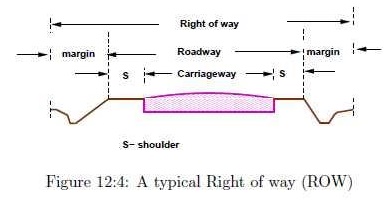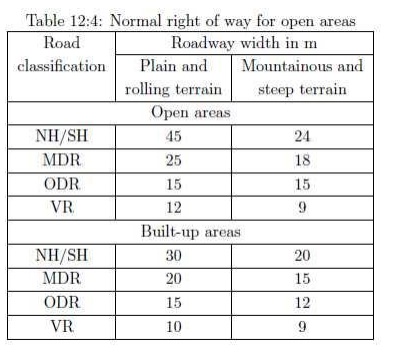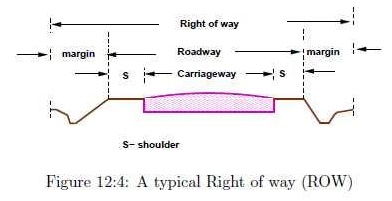Chapter: Civil : Highway Planning and Alignment : Highway Engineering
Highway Planning: Right of way

Right of
way.
Right of way (ROW) or land width is the width of
land acquired for the road, along its alignment. It should be adequate to
accommodate all the cross-sectional elements of the highway and may reasonably
provide for future development. To prevent ribbon development along highways,
control lines and building lines may be provided. Control line is a line which
represents the nearest limits of future uncontrolled building activity in
relation to a road. Building line represents a line on either side of the road,
between which and the road no building activity is permitted at all. The right
of way width is governed by:
Width of formation: It
depends on the category of the highway and width of roadway and road margins.
Height of embankment or depth of cutting: It is
governed by the topography and the vertical alignment.
Side slopes of embankment or cutting: It
depends on the height of the slope, soil type etc. Drainage system and
their size which depends on rainfall, topography etc.
Sight
distance considerations : On curves etc. there is restriction to the visibility
on the inner side of the curve due to the presence of some obstructions like
building structures etc.
Reserve
land for future widening: Some land has to be acquired in advance anticipating
future developments like widening of the road.
The importance of reserved land is emphasized by the
following. Extra width of land is available for the construction of roadside
facilities. Land acquisition is not possible later, because the land may be
occupied for various other purposes (buildings, business etc.)

The
normal ROW requirements for built up and open areas as specified by IRC is
given in Table 12:4 A typical cross section of a ROW is given in Figure 12:4.

Related Topics